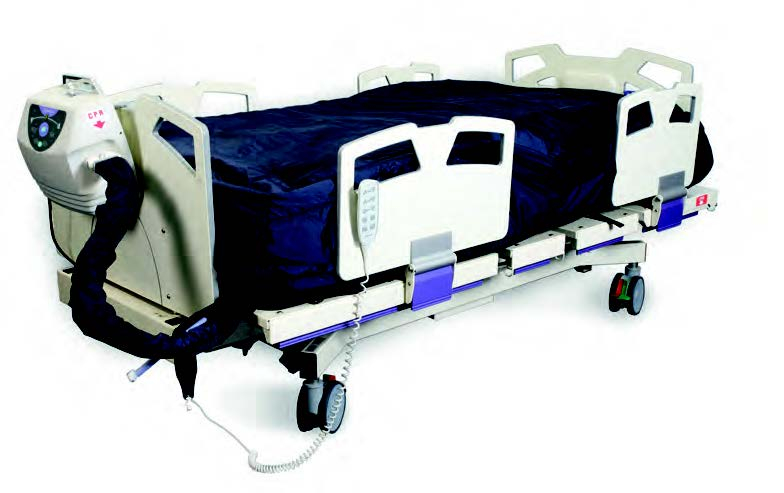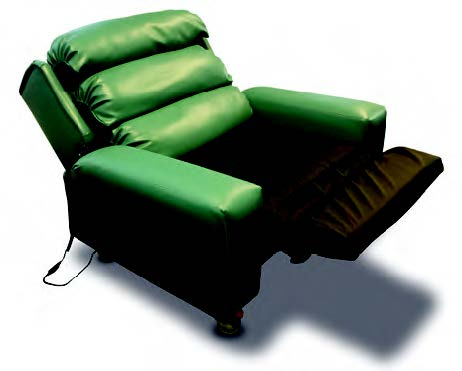
The number of overweight and obese patients in hospitals is increasing, and so is the pressure to source specialist furniture. Here, we explore the shortcomings in current furniture rental solutions and how one trust overcame these to improve patient care and make significant savings.
Doncaster and Bassetlaw Teaching Hospitals (DBTH) is one of Yorkshire’s leading acute trusts. It operates three main acute hospital sites – Doncaster Royal Infirmary, Bassetlaw Hospital in Worksop, and Montagu Hospital in Mexborough – and a number of additional services.
The trust serves a population of more than 420,000 across south Yorkshire, north Nottinghamshire, and the surrounding areas. Therefore, the medical equipment team has its work cut out ensuring the supply of products meets demand.
With obesity rates rising nationally, the team recently reviewed the provision of bariatric equipment –furniture and other products specifically designed to withstand heavier loads.
“To ensure the trust was making the most of public money, the organisation needed to understand what was being spent on the rental of bariatric equipment and identify” said Richard Somerset, the trust’s acting director of procurement.
“Issues had been identified around accuracy and consistency of invoicing, high delivery and installation charges, and a lack of management information.”
It was found that spend could be reduced by around £50,000 a year through a combination of better asset management and by working with a supplier with a more-innovative approach.


Equipment and clinical support issues
Skin integrity lead nurse, Tracy Vernon, said: “In the past we were provided with equipment. There was no clinical support or a dedicated, visible, and approachable advisor to provide much-needed specialist advice and guidance.
“At ward level there was no expert on hand to check patients had the right product for their specific needs, at the right time, and to ensure that staff on the ward were supported to challenge instances of product misuse.
“Having additional pro-active clinical support would mean we were able to provide a much-more-efficient and effective service.”
The tender process
The specification was robust, with key features including:
Four tender bids were eventually submitted through a ‘hire of bariatric bed, furniture and associated equipment’ mini competition via the East of England NHS Collaborative Procurement Hub’s Bariatric Furniture and Equipment Framework.
Following the process, Medstrom Healthcare was awarded the contract in August 2017.
Despite the challenges of transitioning to Medstrom’s, the trust now benefits from:
Lower costs
Somerset believes the trust has reduced unnecessary costs, and provides a better service for patients.
Andrew Leverton, medical technical services manager, says that DBTH has a tangible drop in charges. He says, “Thanks to Medstrom’s iTracker software, we now have a better handle on assets. We can quickly and simply match invoices with rental periods, while facilitating a clearer picture of where equipment is. For example, if a bed is on hire and a patient has been discharged, we can now easily stop the product rental.”
Key performance indicator reporting
This is enabling the trust to not only have real-time access to performance data, but to quickly and accurately respond to requests from auditors and demonstrate financial accountability.
Other benefits
Skin integrity is also an area that is further benefitting from the switch.
And clinical advisors are visible on the wards and hold weekly sessions with clinical and housekeeping staff to ensure bed management is optimised.
Housekeeper, Steve Watson, said, “Health workers often don’t know how to use the beds, so access to ongoing training is really helpful. This also gives confidence to patients by adding an extra, visible layer promoting better comfort, care and experience”.
An expanding partnership
The trust is now looking to Medstrom to provide tilt-in-space chairs and ultra-low beds.
“We aim to create a ‘one-stop shop’. This will help the trust to achieve its vision of providing all patients with the most-appropriate equipment to support the provision of harm-free, high-quality, personalised care, quickly, efficiently, and cost effectively” said Vernon.